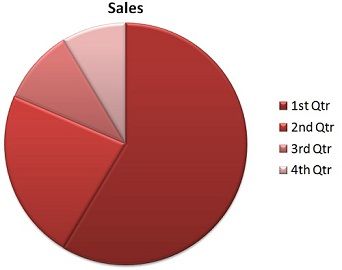 Primary data is described as a data originally collected, in essence, the data gathered is afresh and for the first time. Surveys and Experiments are two important statistical techniques used in research and data collection. When the research type is experimental, experiments are considered as a major source of primary data. On the other end, surveys are performed when the research is descriptive in nature.
Primary data is described as a data originally collected, in essence, the data gathered is afresh and for the first time. Surveys and Experiments are two important statistical techniques used in research and data collection. When the research type is experimental, experiments are considered as a major source of primary data. On the other end, surveys are performed when the research is descriptive in nature.
While surveys collected data, provided by the informants, experiments test various premises by trial and error method. This article attempts to shed light on the difference between survey and experiment, have a look.
Content: Survey Vs Experiment
Comparison Chart
| Basis for Comparison | Survey | Experiment |
|---|---|---|
| Meaning | Survey refers to a technique of gathering information regarding a variable under study, from the respondents of the population. | Experiment implies a scientific procedure wherein the factor under study is isolated to test hypothesis. |
| Used in | Descriptive Research | Experimental Research |
| Samples | Large | Relatively small |
| Suitable for | Social and Behavioral sciences | Physical and natural sciences |
| Example of | Field research | Laboratory research |
| Data collection | Observation, interview, questionnaire, case study etc. | Through several readings of experiment. |
Definition of Survey
By the term survey, we mean a method of securing information relating to the variable under study from all or a specified number of respondents of the universe. It may be a sample survey or a census survey. This method relies on the questioning of the informants on a specific subject. Survey follows structured form of data collection, in which a formal questionnaire is prepared, and the questions are asked in a predefined order.
Informants are asked questions concerning their behaviour, attitude, motivation, demographic, lifestyle characteristics, etc. through observation, direct communication with them over telephone/mail or personal interview. Questions are asked verbally to the respondents, i.e. in writing or by way of computer. The answer of the respondents is obtained in the same form.
Definition of Experiment
The term experiment means a systematic and logical scientific procedure in which one or more independent variables under test are manipulated, and any change on one or more dependent variable is measured while controlling for the effect of the extraneous variable. Here extraneous variable is an independent variable which is not associated with the objective of study but may affect the response of test units.
In an experiment, the investigator attempts to observe the outcome of the experiment conducted by him intentionally, to test the hypothesis or to discover something or to demonstrate a known fact. An experiment aims at drawing conclusions concerning the factor on the study group and making inferences from sample to larger population of interest.
Key Differences Between Survey and Experiment
The differences between survey and experiment can be drawn clearly on the following grounds:
- A technique of gathering information regarding a variable under study, from the respondents of the population, is called survey. A scientific procedure wherein the factor under study is isolated to test hypothesis is called an experiment.
- Surveys are performed when the research is of descriptive nature, whereas in the case of experiments are conducted in experimental research.
- The survey samples are large as the response rate is low, especially when the survey is conducted through mailed questionnaire. On the other hand, samples required in the case of experiments is relatively small.
- Surveys are considered suitable for social and behavioural science. As against this, experiments are an important characteristic of physical and natural sciences.
- Field research refers to the research conducted outside the laboratory or workplace. Surveys are the best example of field research. On the contrary, Experiment is an example of laboratory research. A laboratory research is nothing but research carried on inside the room equipped with scientific tools and equipment.
- In surveys, the data collection methods employed can either be observation, interview, questionnaire, or case study. As opposed to experiment, the data is obtained through several readings of the experiment.
Conclusion
While survey studies the possible relationship between data and unknown variable, experiments determine the relationship. Further, Correlation analysis is vital in surveys, as in social and business surveys, the interest of the researcher rests in understanding and controlling relationships between variables. Unlike experiments, where casual analysis is significant.






sanjay kumar yadav says
Thank you
Ishika says
The article was quite helpful… Thank you.
Rohit says
Can you develop your Application for Android
Surbhi S says
Yeah, we will develop android app soon.
Chris says
If I was doing an experiment with Poverty and Education level, which do you think would be more appropriate for me?
Thanks, Chris
Ndaware M.M says
So interested,
Thank you
Victoria Addington says
Thank you for explaining the topic